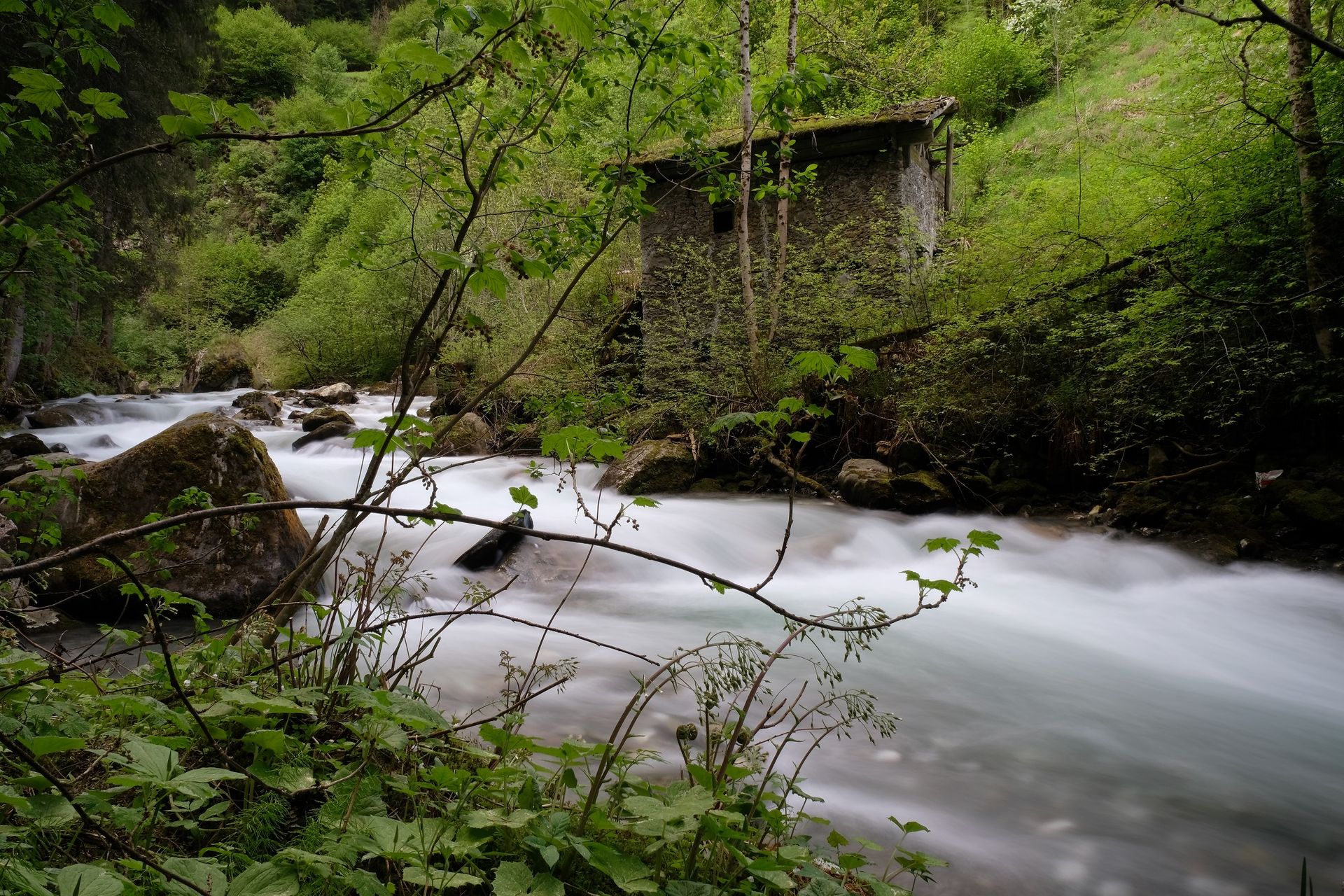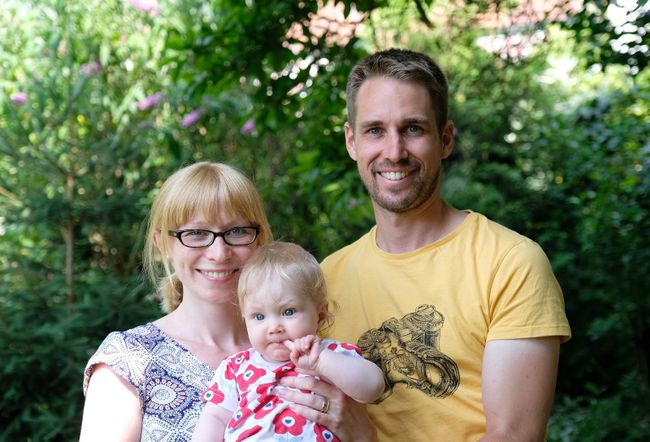Beyond the Cardamom Mountains
Cyhoeddwyd: 17.02.2019
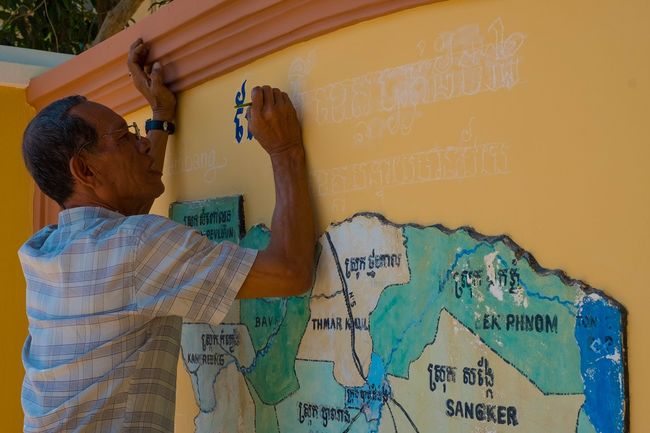
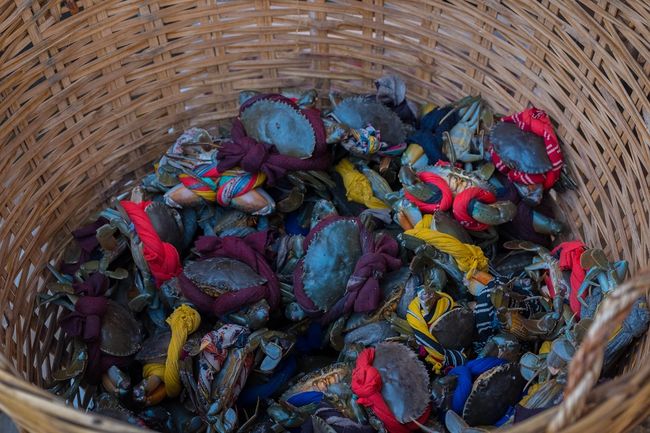
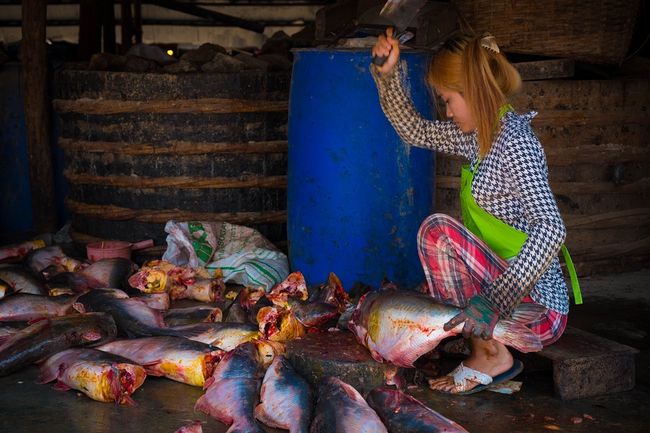
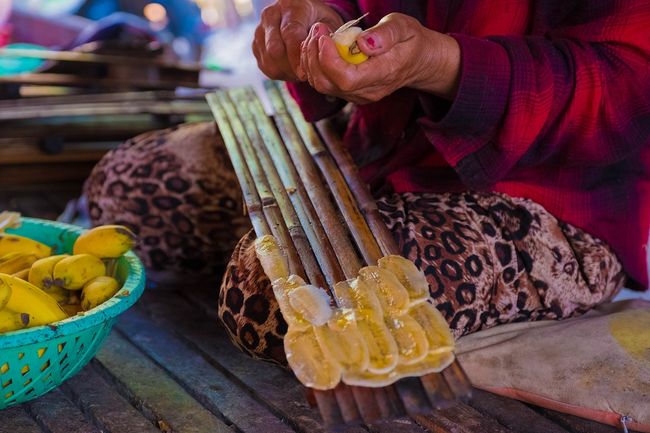
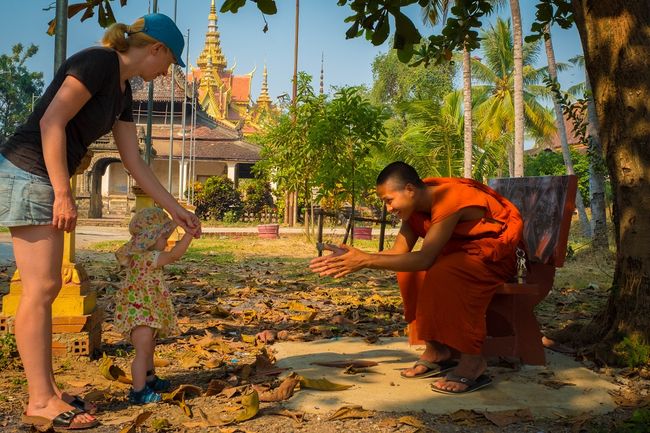
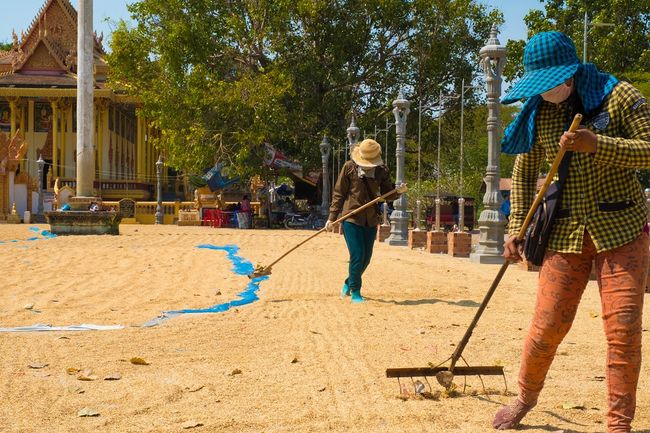
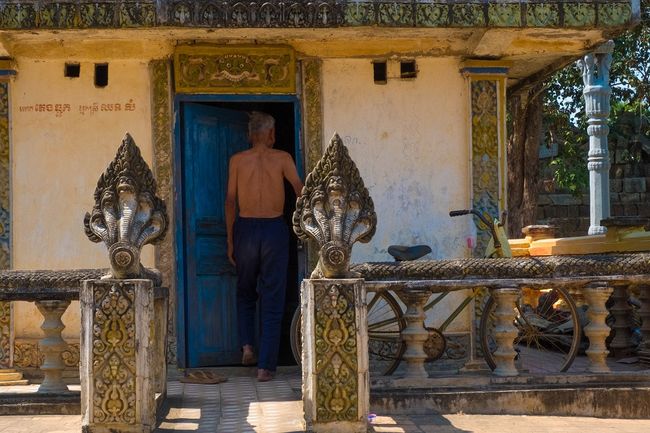
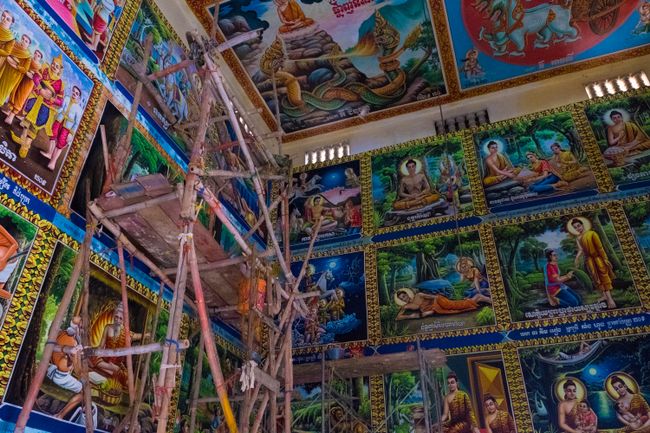
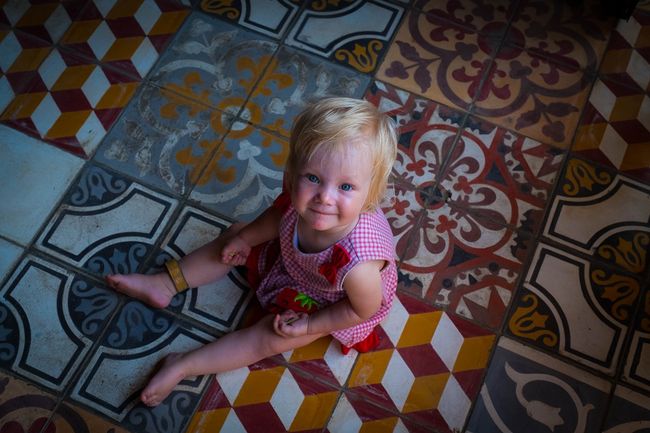
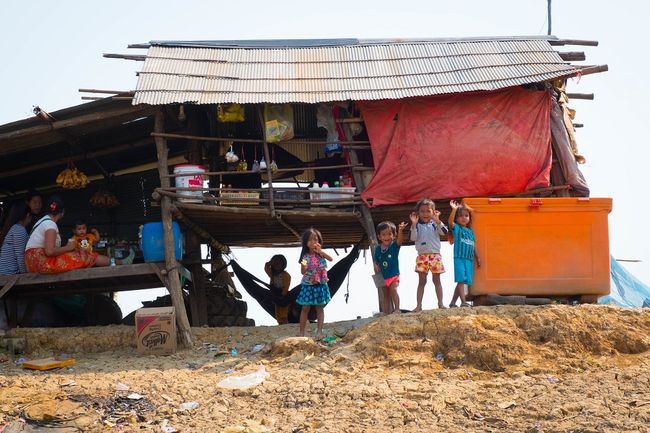
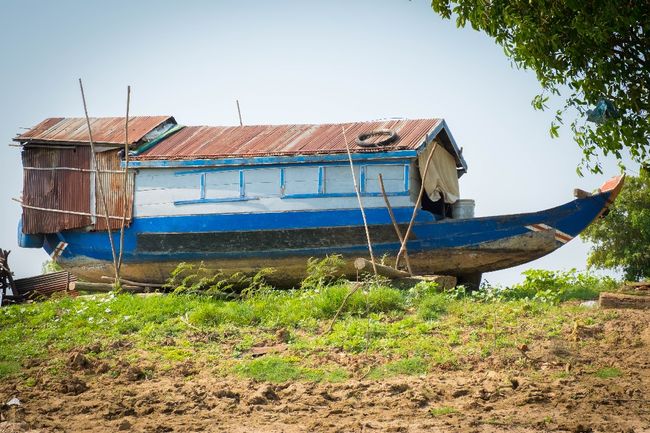
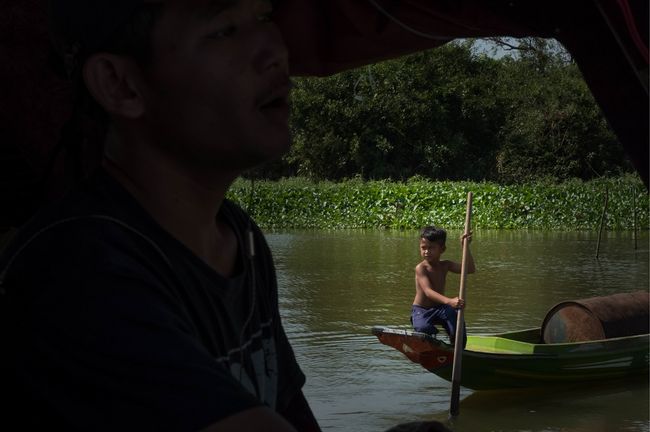
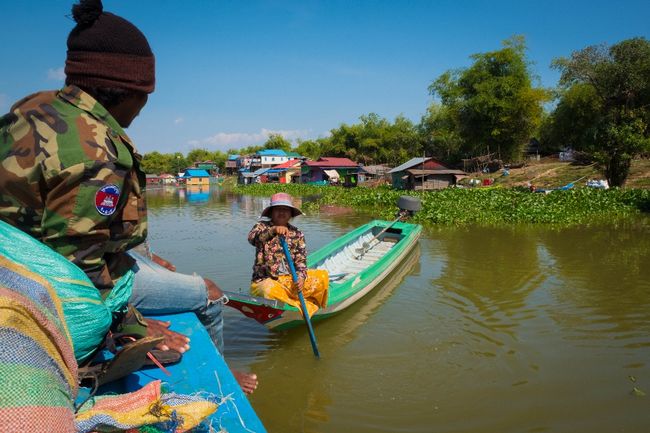
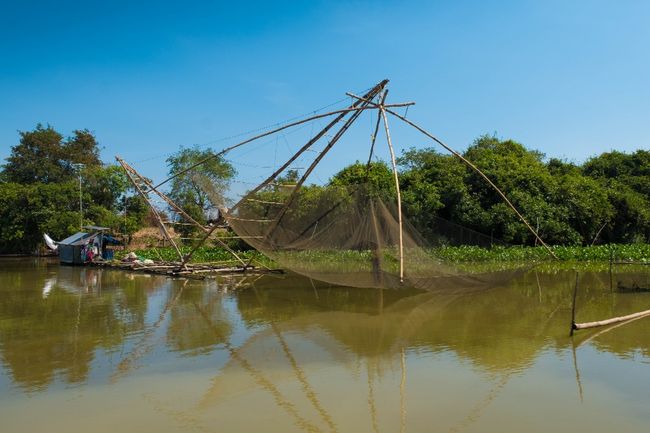
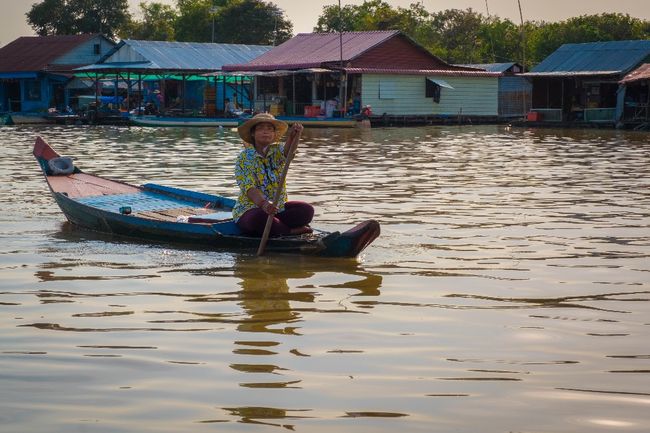
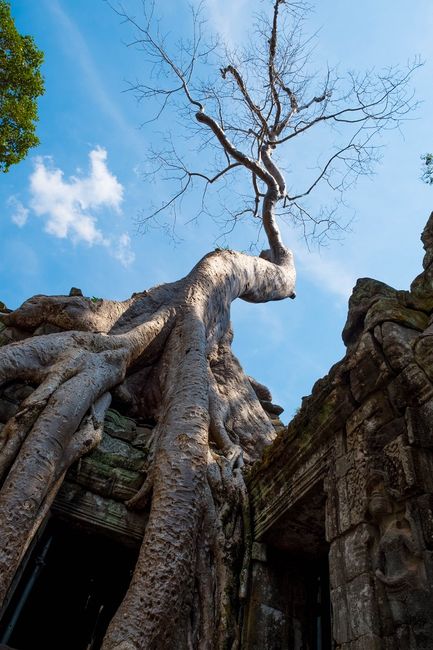
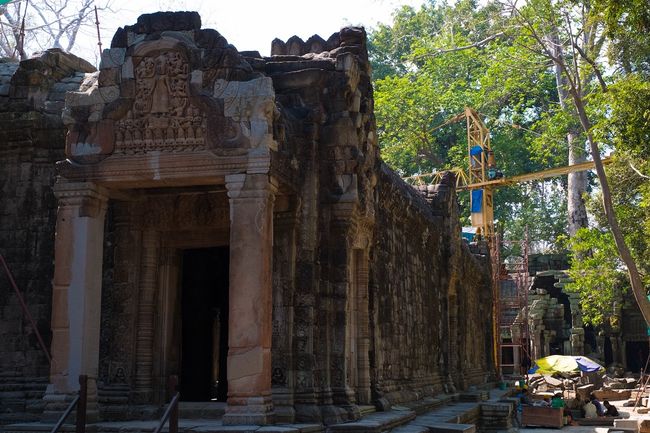
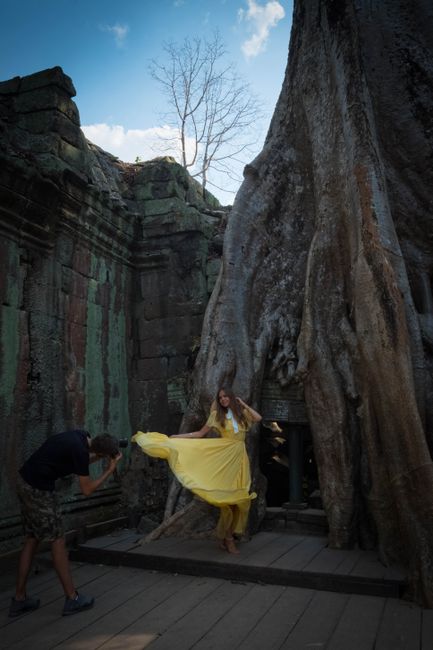
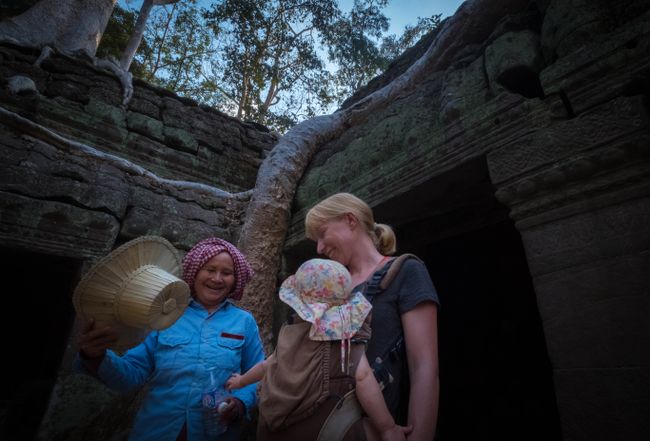
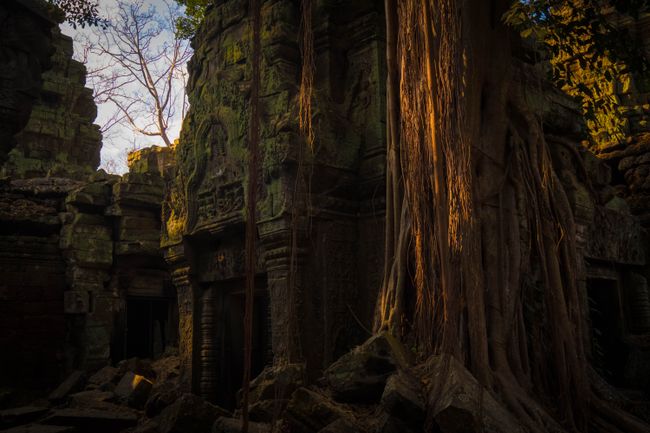
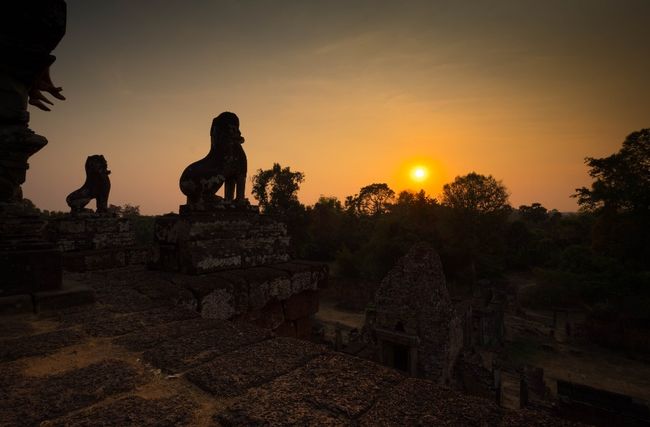
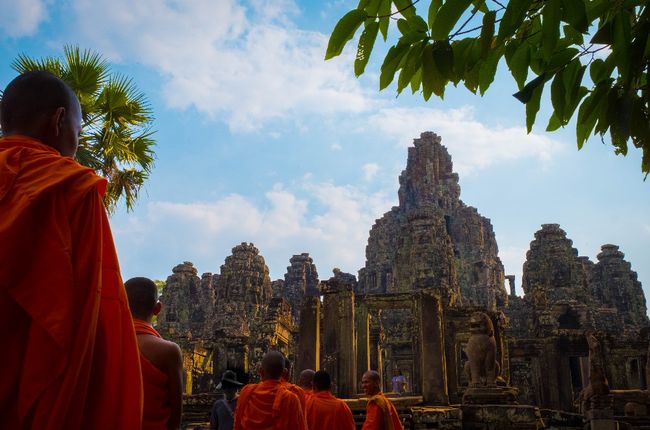
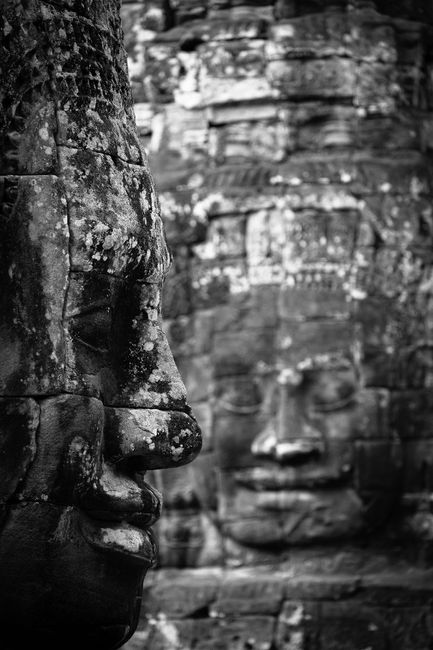
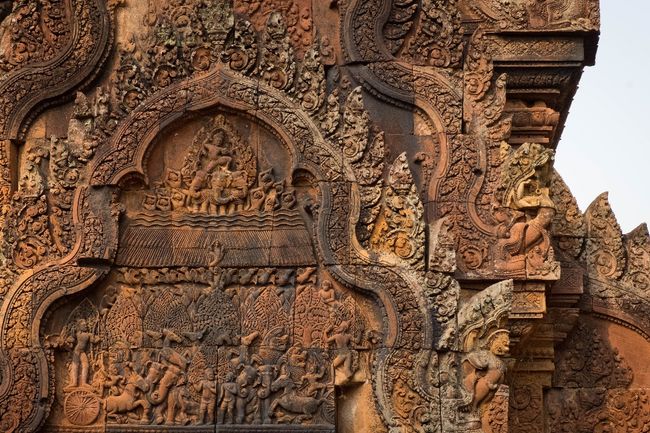
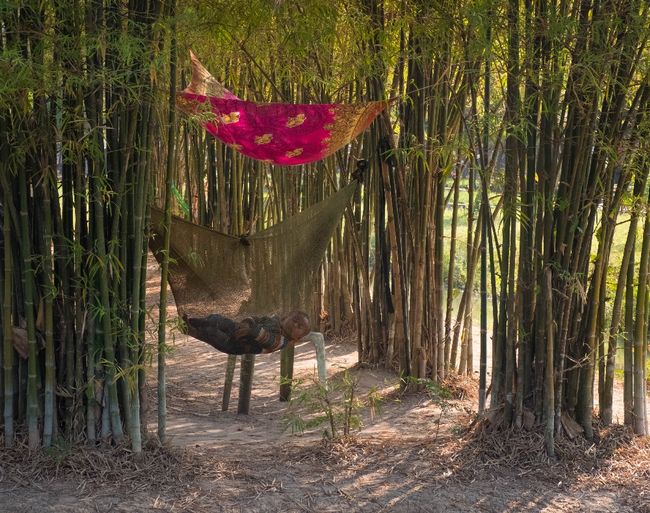
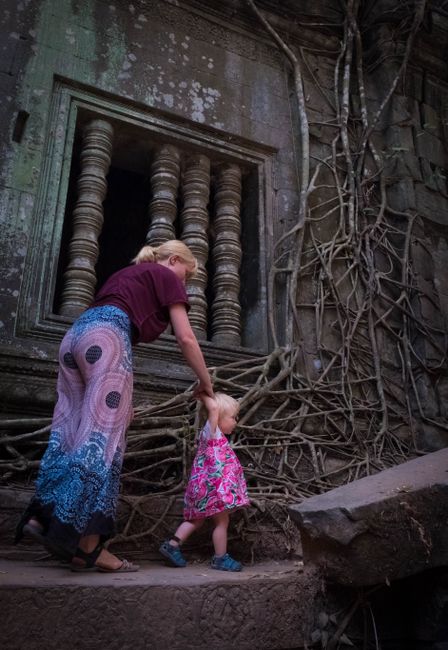
Tanysgrifio i'r Cylchlythyr
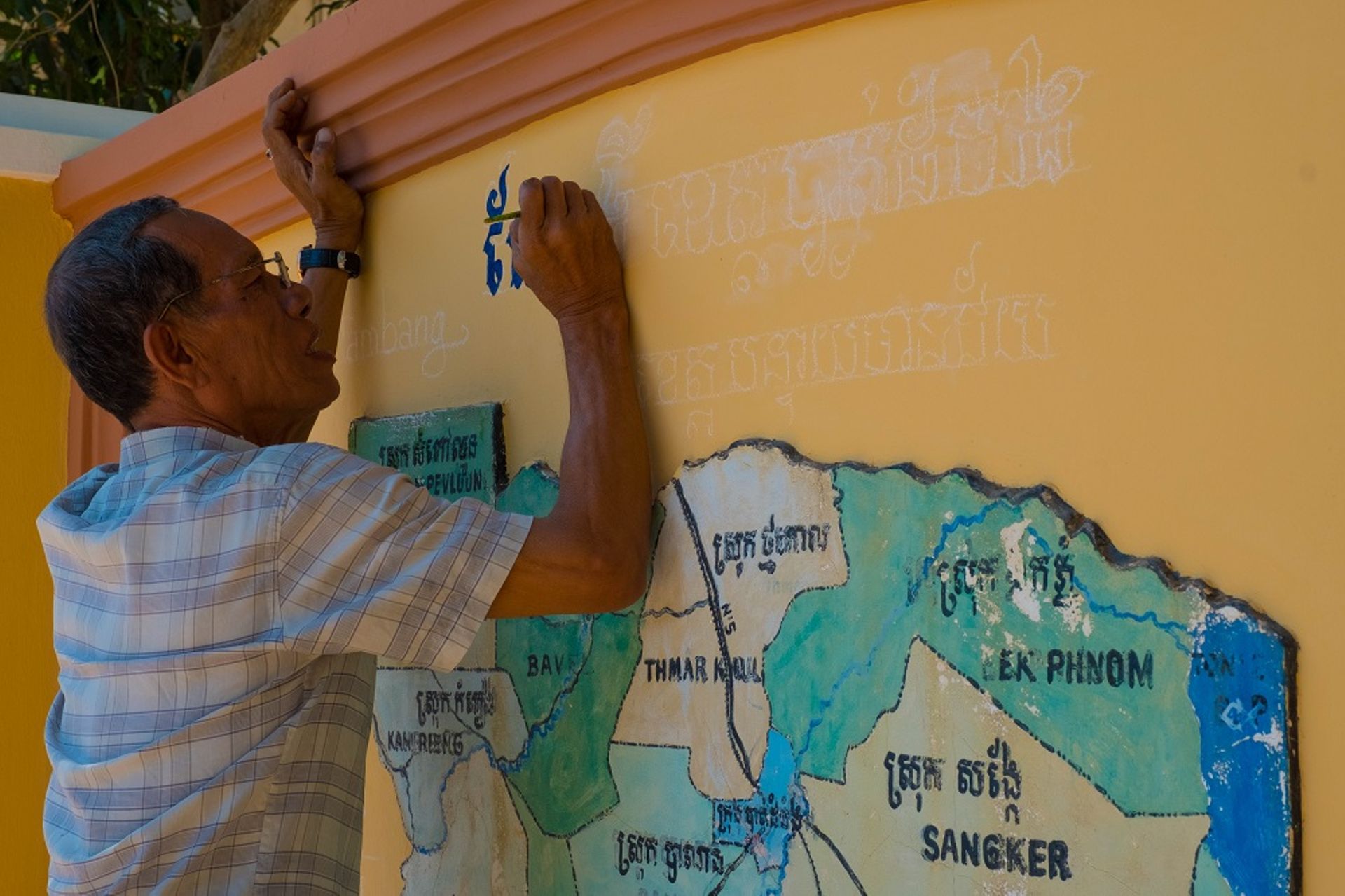
When you travel from Thailand to Cambodia, you quickly notice that a different set of rules is being played here. The many casinos attest to this, but first and foremost, the border officer naturally demands 5 US $ more than the visa actually costs. We didn't dare to ask more than three times what it was for. After all, we wanted to enter the country.
There are many curious things in Cambodia. Such as the means of transportation: You see trucks with people sitting on the cab and trucks without a cab at all. At least the driver wears a motorcycle helmet. In addition to traffic safety, occupational safety is also emphasized. We watched as an electrician leaned his ladder against a thin power pole. Shaky, he climbed to the top rung of the too short ladder and fiddled with the electrical wiring. Needless to say, he wasn't wearing safety shoes, especially since there was a sharp metal fence right below him. It is precisely these situations that make traveling never boring.
We quickly felt comfortable in Cambodia. This continued throughout our entire stay. Especially because we met some of the friendliest people of our trip here. Whether street vendors, tuk-tuk drivers or hotel staff, they were all helpful and friendly, always had a banana ready for Antonia and a smile on their face.
Like the past weeks in Thailand, we were traveling in Cambodia together with Swenja's parents. Our first stop was the city of Battambang in the northwest of the country. The city center still consists mainly of buildings from the French colonial period. They have their characteristic charm, especially since some cafes and art galleries have settled there, inviting you to browse. The same goes for the large market, where you can get pretty much anything from T-shirts to crustaceans.

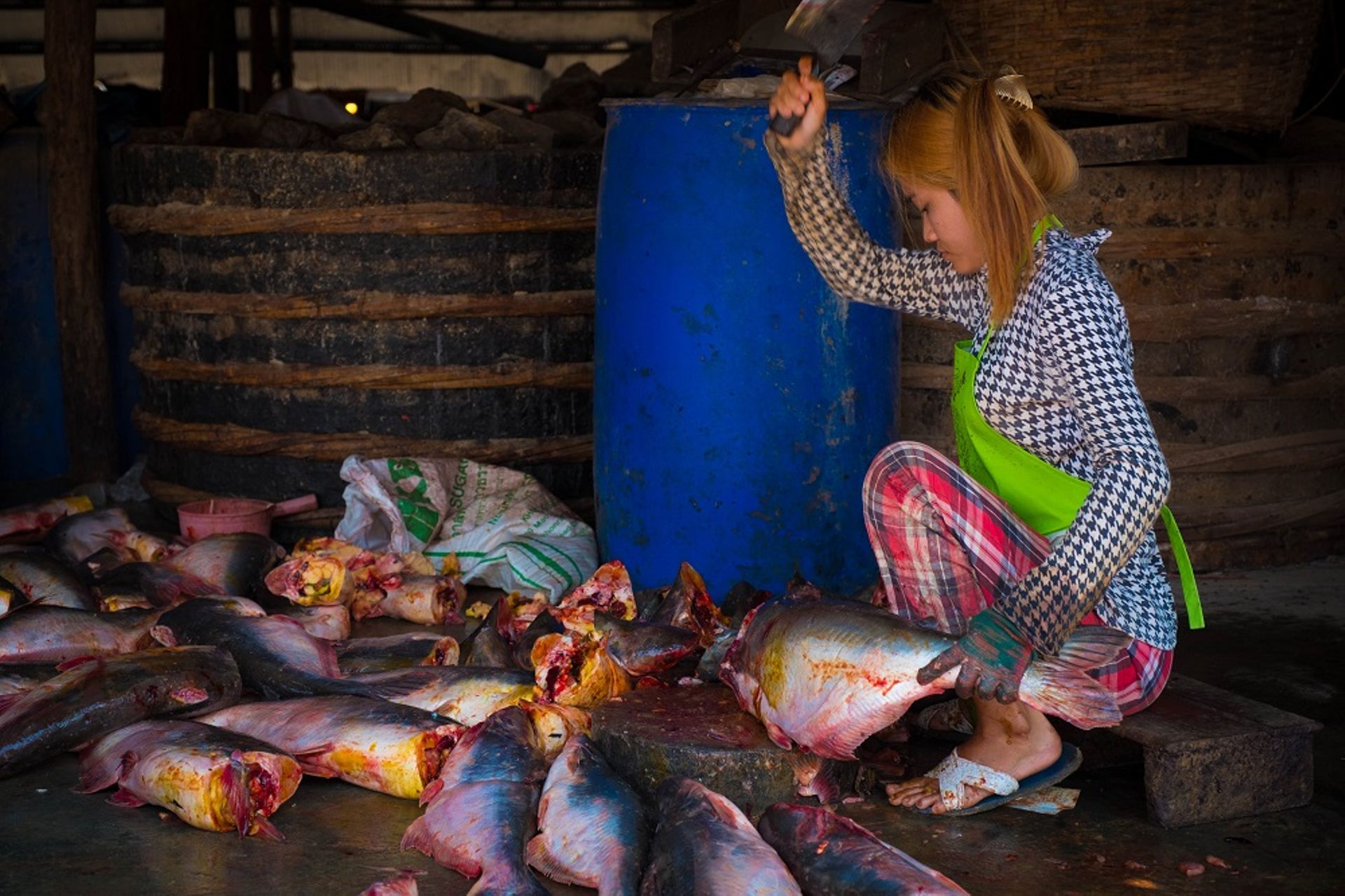


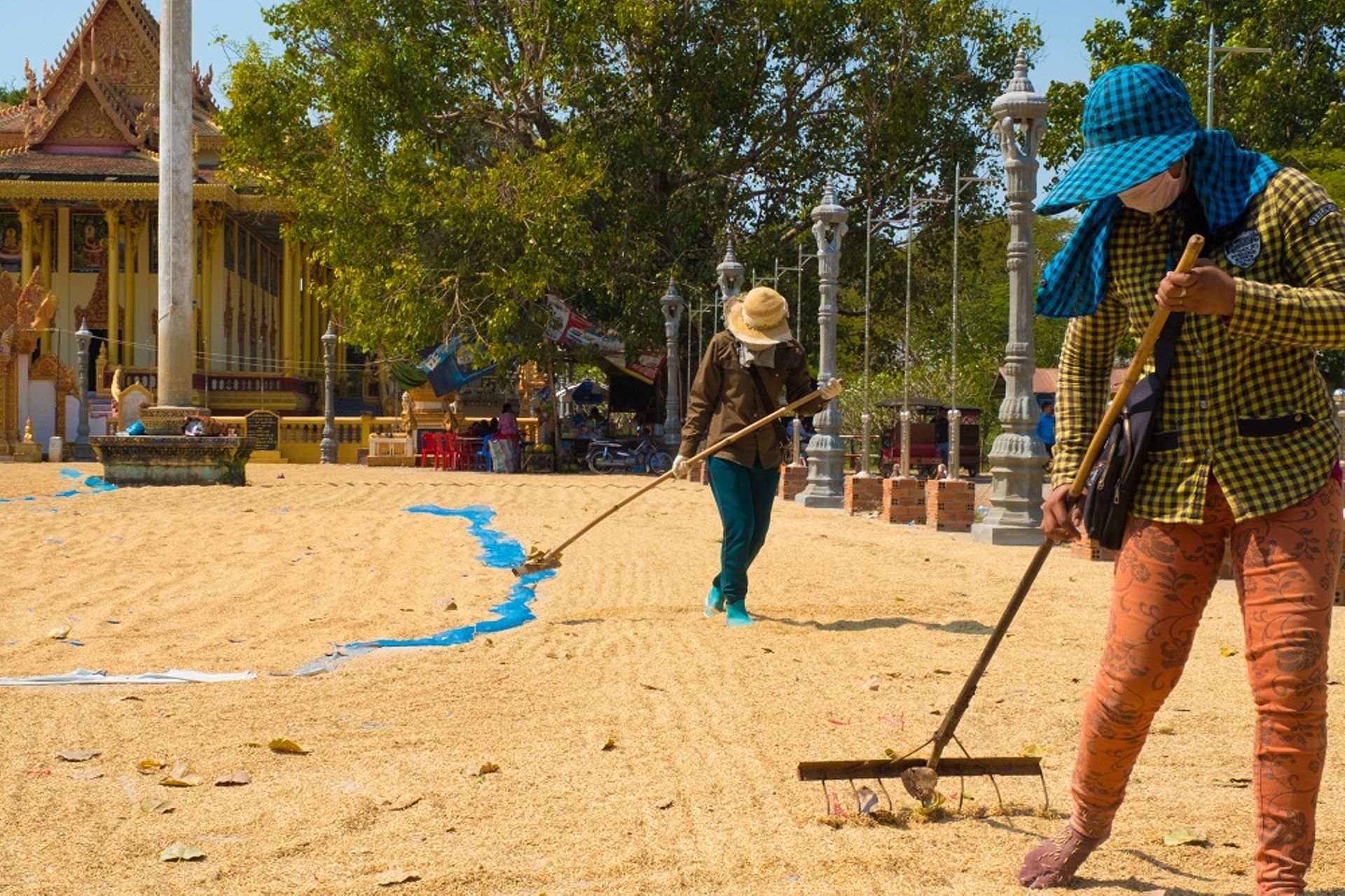



From Battambang, you can take a bus to Siem Reap in three to four hours, which was our next stop. We took the boat on the Sangker River and across the Tonle Sap Lake, the largest lake in the country, to reach Siem Reap. The villages built on rafts along the river are the reason why this boat operates: On the one hand, it is an important means of transport for many people living in these floating villages, and on the other hand, many tourists undertake the long and noisy journey to get an impression of this region that can only be reached by water. People build their houses on rafts because the water level of the Tonle Sap and its tributaries fluctuates by up to eight meters throughout the year. We knew that the journey could take five to nine hours. Since we got stuck several times due to the low water level in the dry season and then a fishing net got tangled in the engine, we actually spent nine hours on the boat. It would be an exaggeration to say that we enjoyed the ride. However, the insights into the lives of the people and the landscape shaped by changing water levels were definitely worth the additional hours of travel. We were also shocked by the masses of plastic waste that cover the banks.




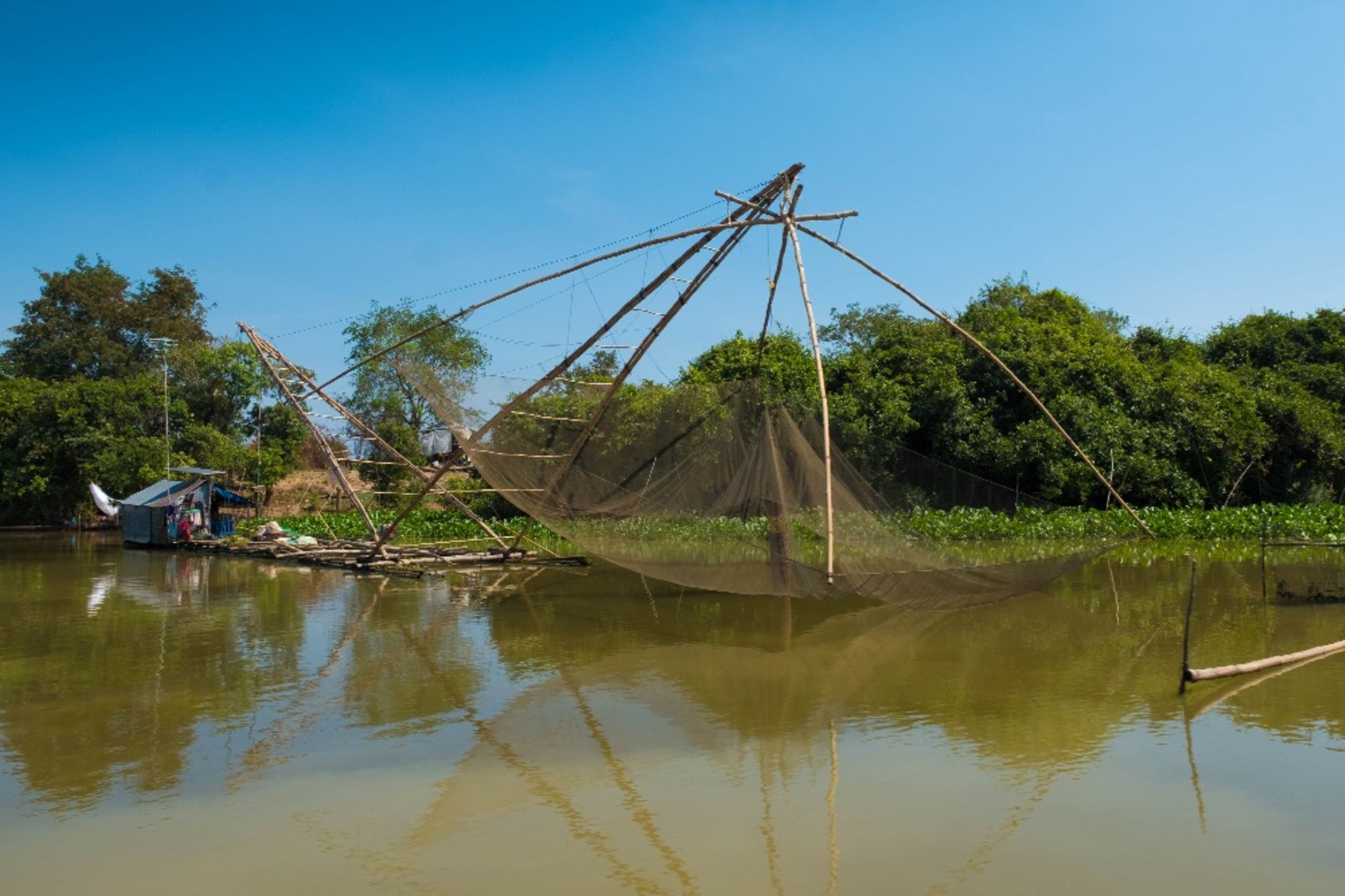

Siem Reap is a city near the Angkor region, which was the center of the historic Khmer Kingdom of Kambuja from the 9th to the 15th century. It is the starting point for visiting the architectural wonders of the Khmer in the form of unique temple complexes - especially Angkor Wat, the largest temple complex in the world. Several capital cities and a large central temple were built on a total area of more than 200 km² by successive kings. While the houses and palaces were made of wood and have not been preserved, many of the temples can be visited. To date, more than 1,000 temples and sanctuaries of various sizes have been discovered. There are speculations that up to one million people could have lived in the greater Angkor area at the peak of the historical kingdom, on an area of approximately 1,000 km². More than in London, Paris or Istanbul at that time.
Even though Angkor Wat is the largest temple, we found others more impressive. Bayon, Banteay Srei, Ta Prohm, or Beng Mealea. They all have their unique character and enchant with large faces made of multiple stone blocks or finest stone carving. In the last two mentioned, it is the trees that give the temples their exotic-mystical charm. Especially Beng Mealea has hardly been restored so far. Wooden walkways lead through the temple complex and allow you to experience the impressions of early adventurers of the 19th century. If it weren't for Chinese tour groups showing up in quantities that can hardly be described as anything other than "busload".
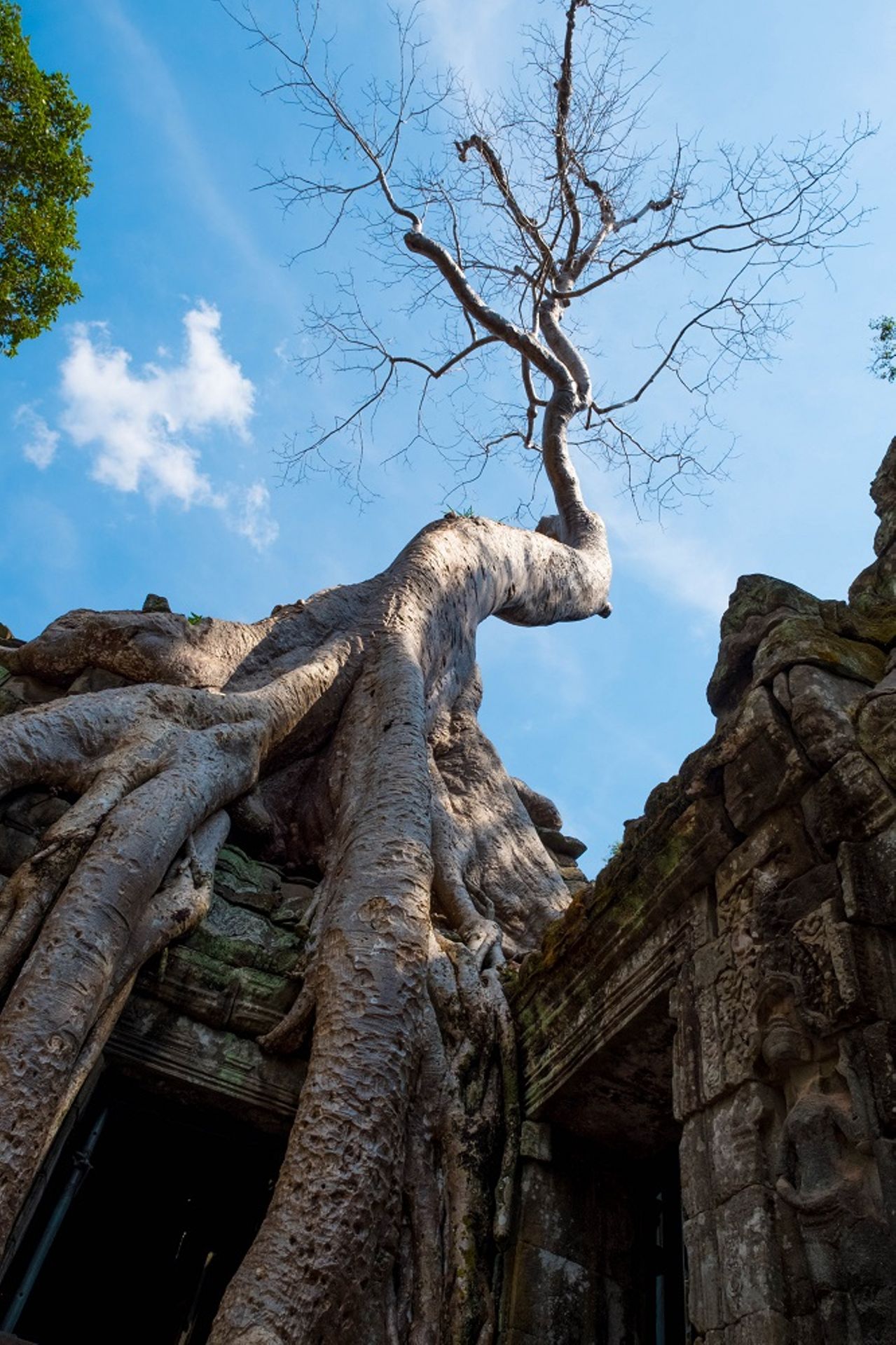
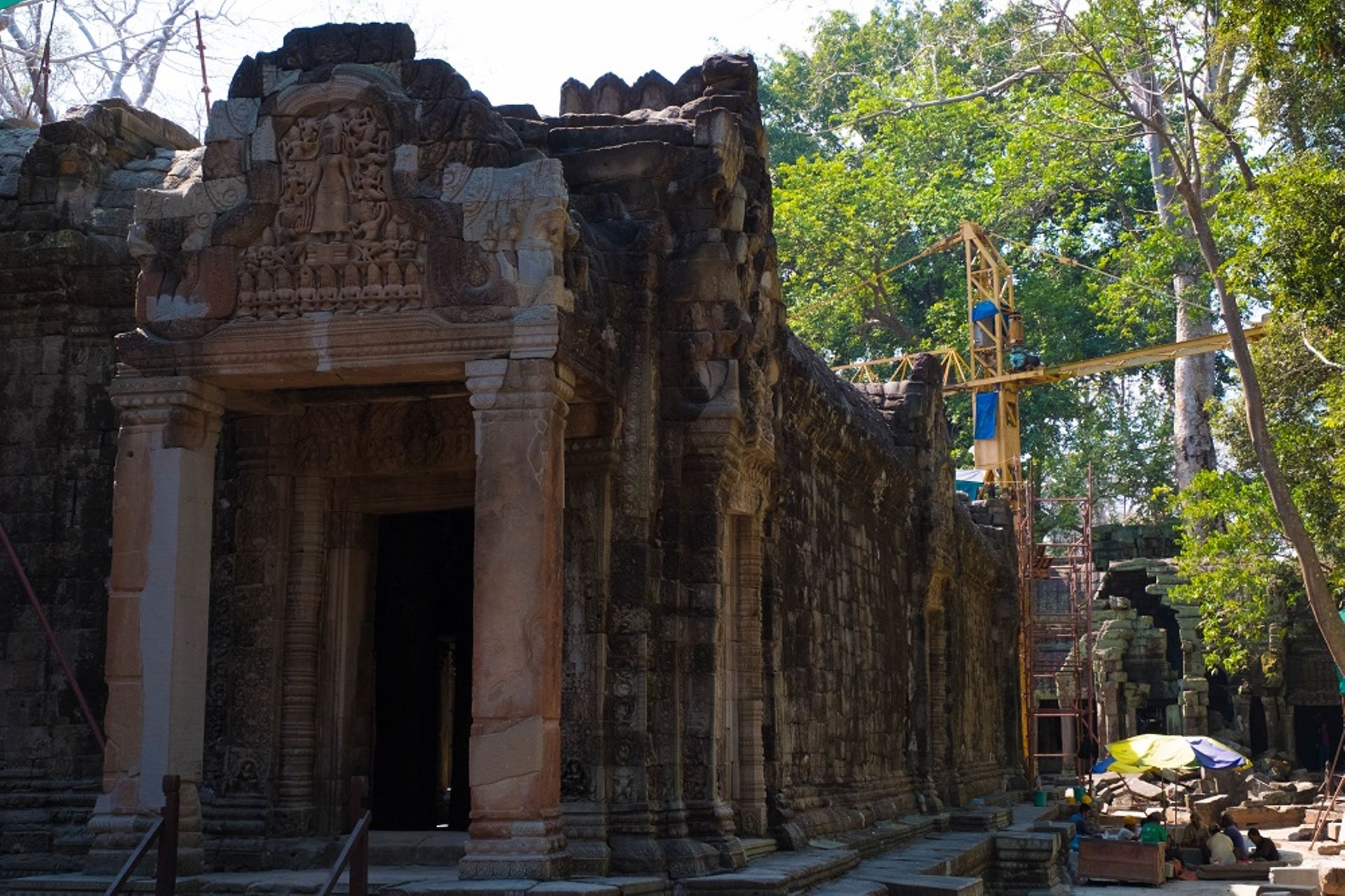
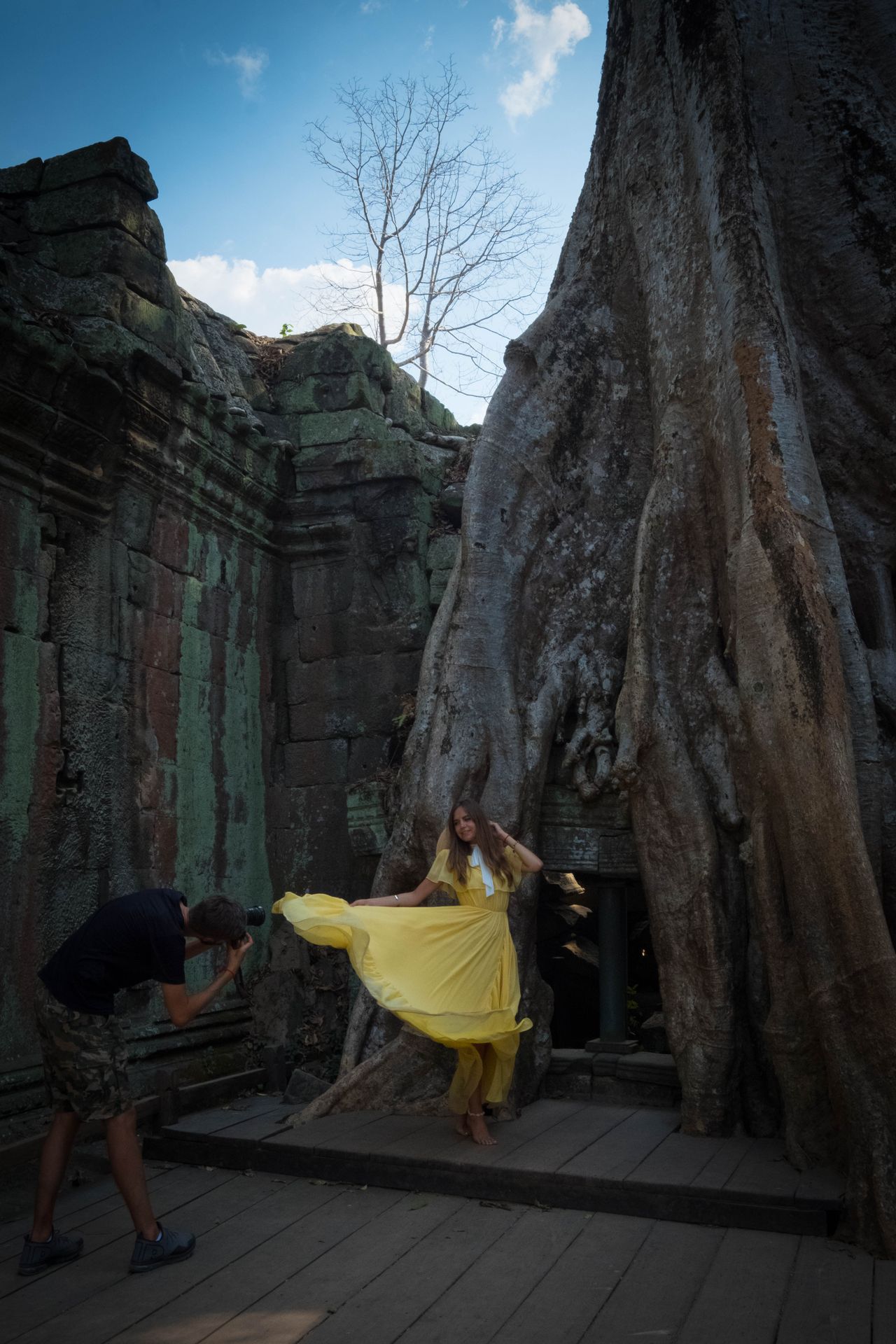
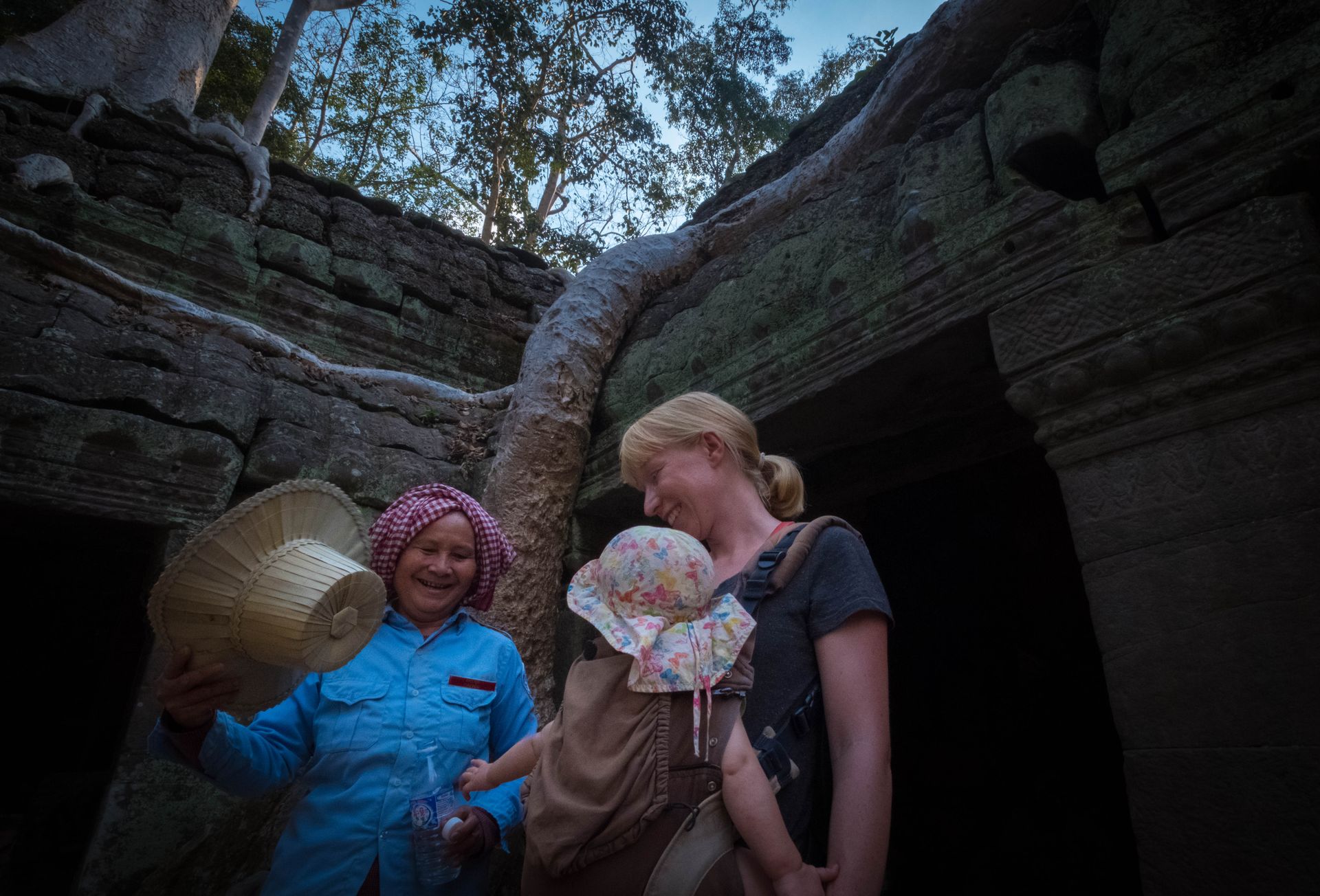
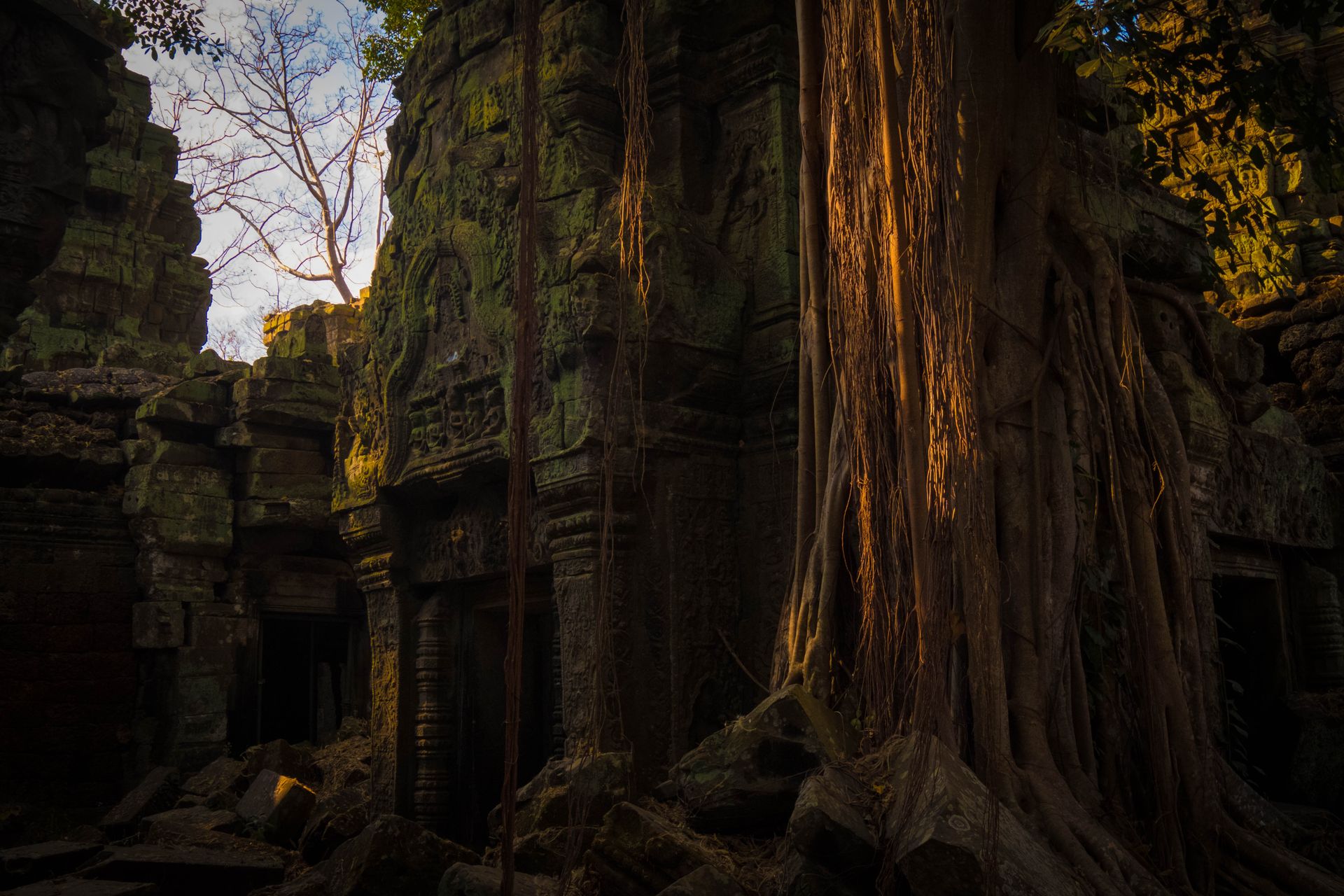
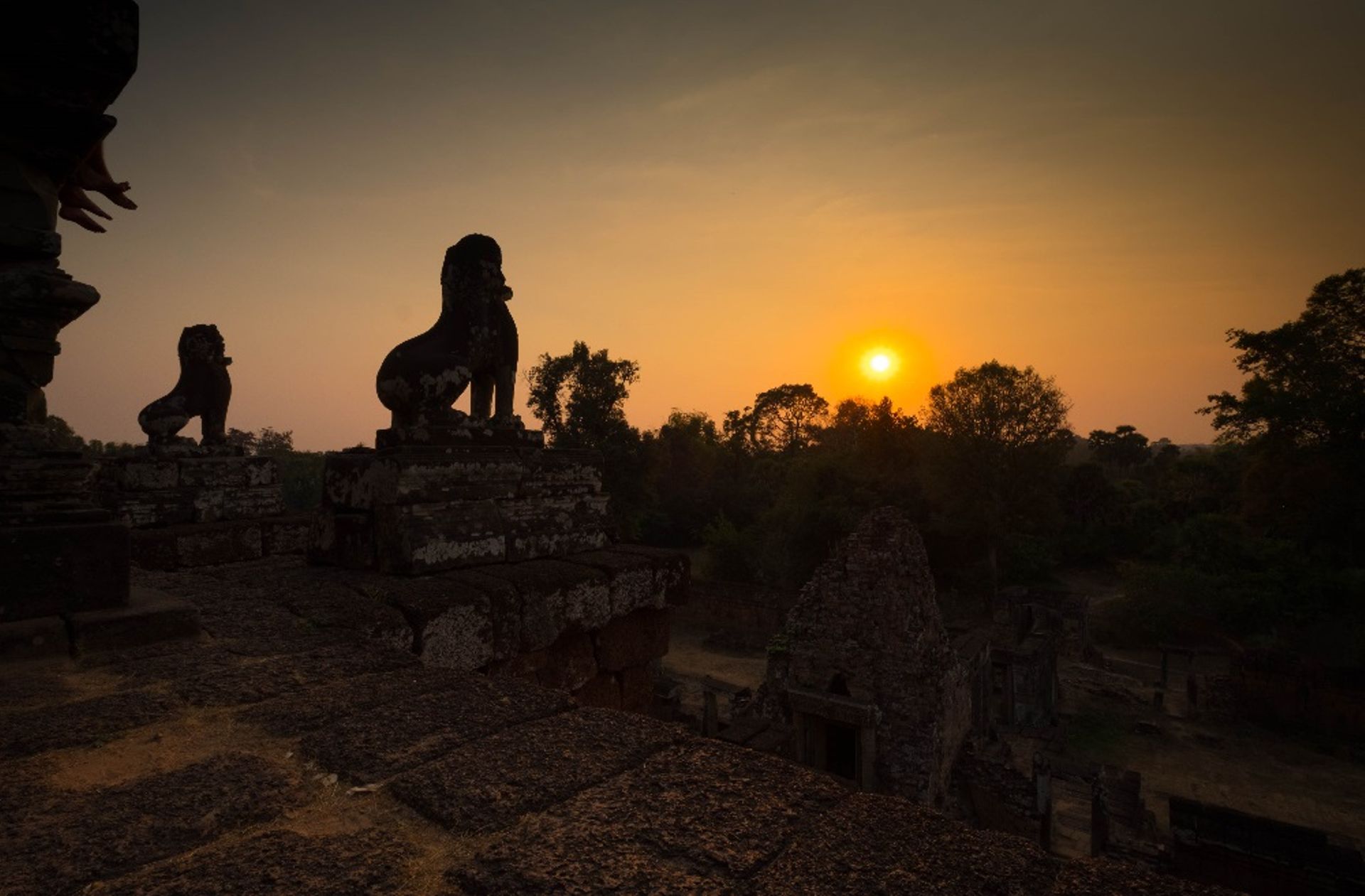
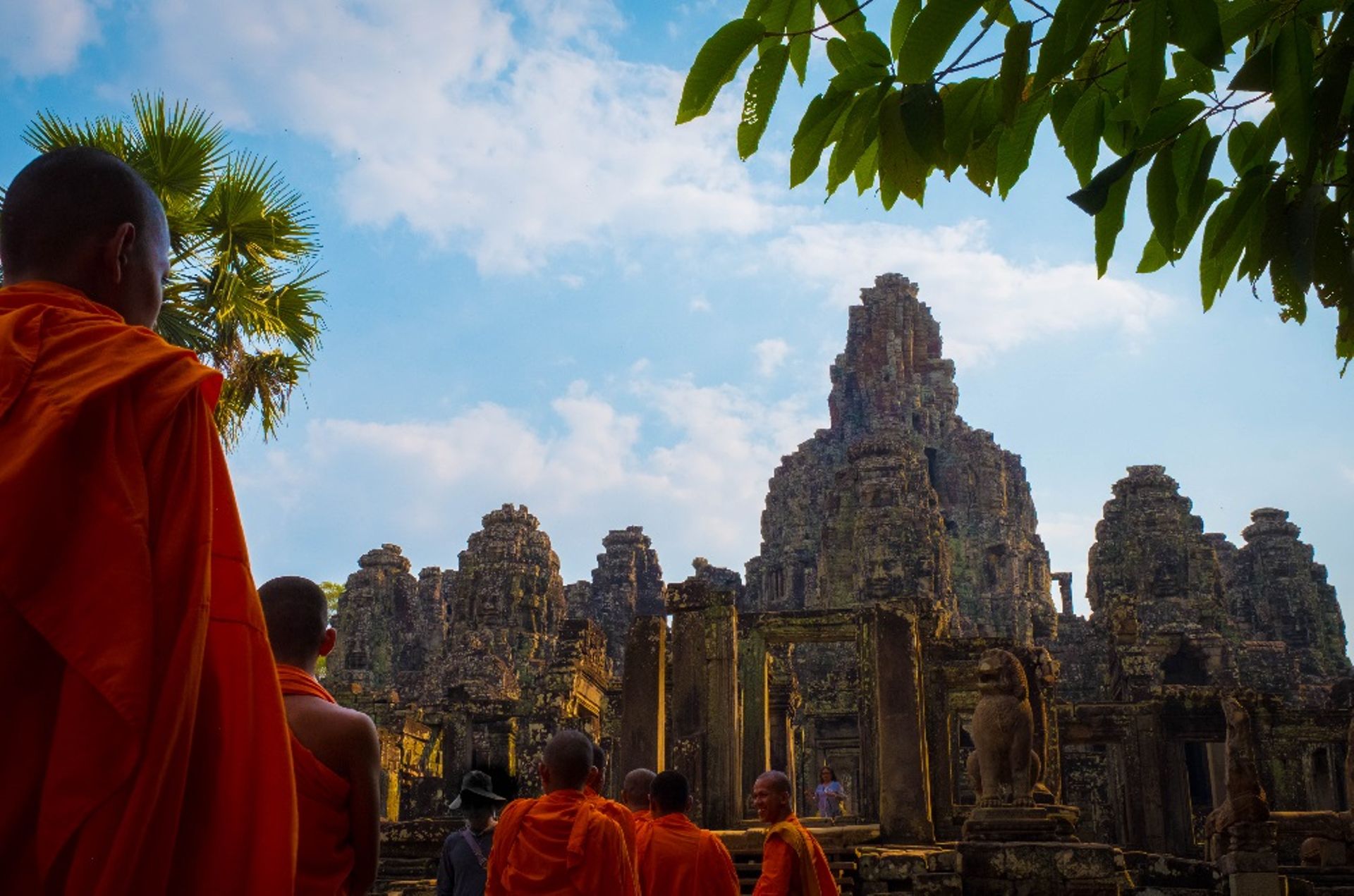

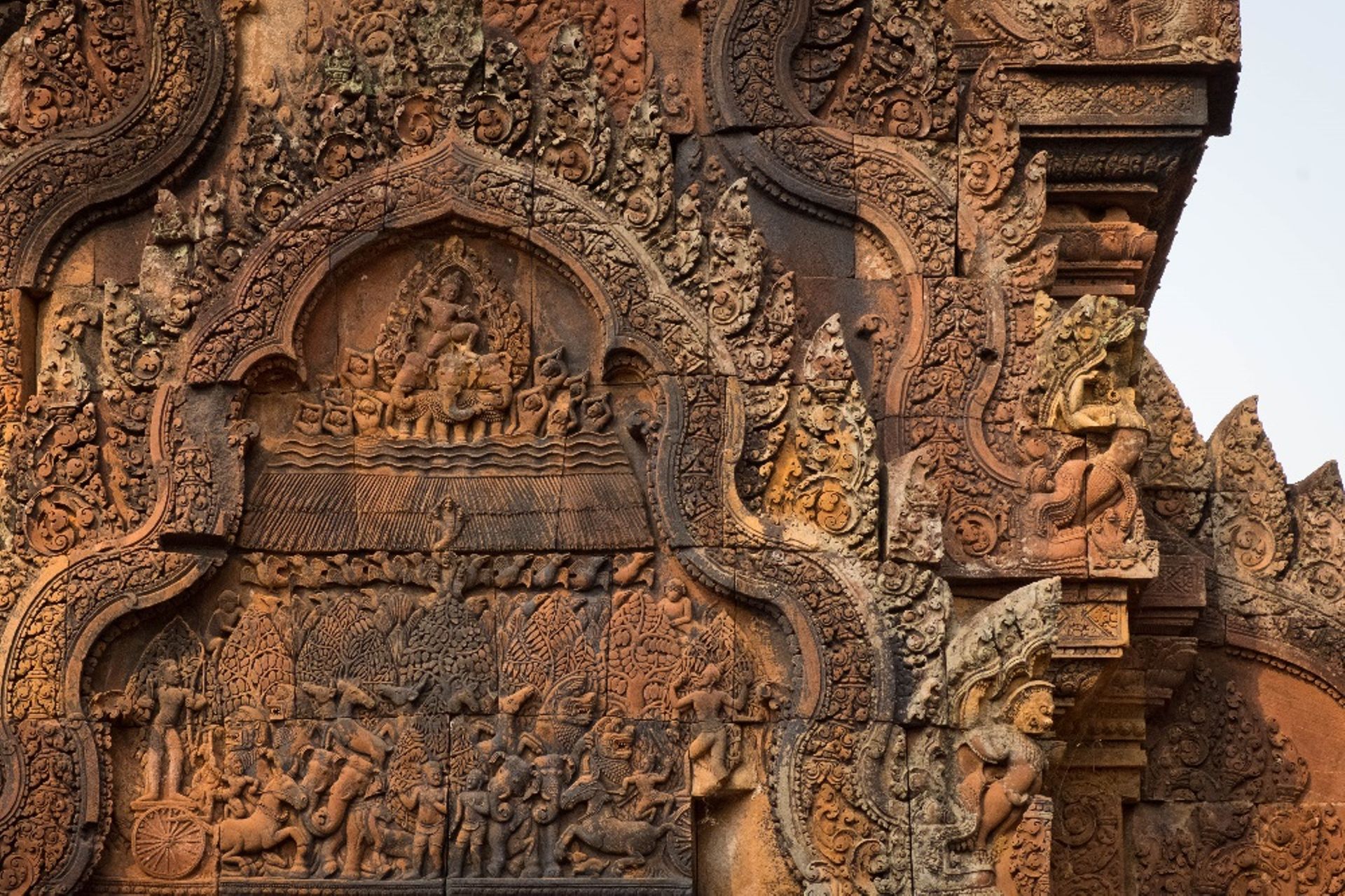

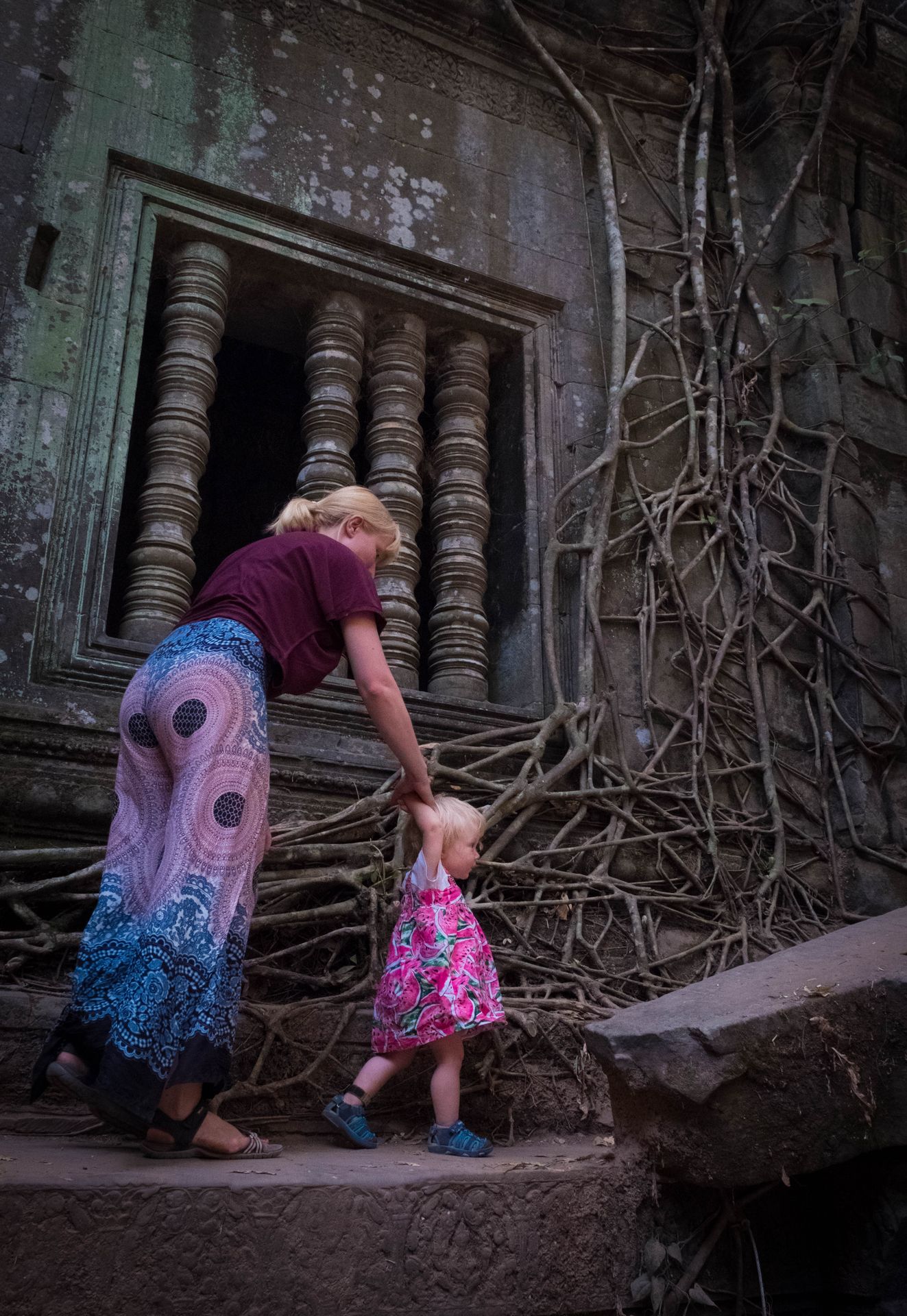
As a final curiosity, we want to mention the Cambodian currency. The official currency is the Riel. Four thousand Riel have the equivalent value of one US $. In other countries, the ratio is even more unbalanced, but it is customary in Cambodia to pay everything above a value of four thousand Riel in US $. It takes some getting used to, as you constantly have two currencies in your wallet. You first have to find out that ATMs are only stocked with US $, but the software of the ATMs is still set to Riel. When we were not particularly successful with our first attempts to withdraw money and chose the lowest pre-set amount, we tried to withdraw 10,000 US $, which was rejected for understandable reasons, and on the other hand, to receive Riel worth 2.5 US $, which would not have gotten us much further.
Tanysgrifio i'r Cylchlythyr
Ateb (2)
Harald
Schöne Fotos,tolle Eindrücke.
Wir wünschen euch noch eine gute Reise.Harald&BirgitSwenja
Vielen Dank! Wir sind jetzt mitten in den Vorbereitungen für eine 6-tägige Wanderung in Neuseeland, morgen gehts los. 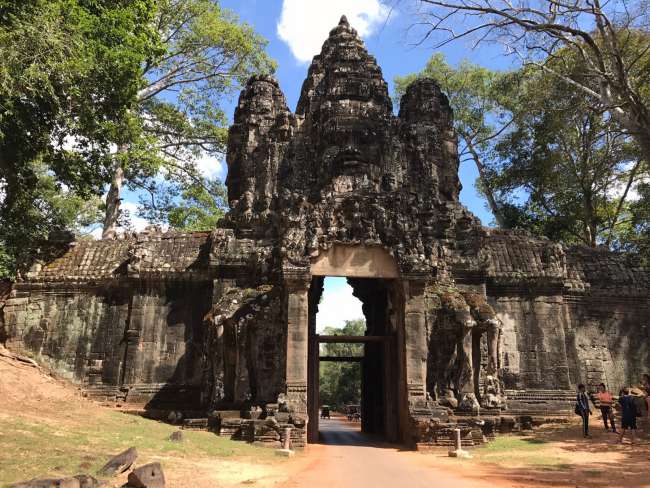
Adroddiadau teithio Cambodia
